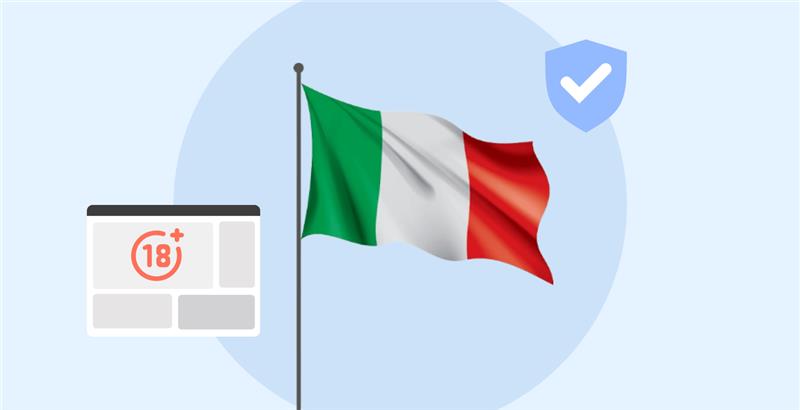-
Italy has launched an age verification campaign for online adult content.
-
Because of the new policy, Italians have started patronising VPNs.
-
However, users face a risk of becoming victims of shady VPN services.
Due to the recent mandatory age verification in Italy, the use of VPN services has surged significantly. According to Google Trends’ data, searches connected to VPNs have leaped to twice its size following Italy’s mandatory age verification.
As per the new regulation, beginning from November 12, adult streaming platforms will need to confirm that all their visitors are over 18.
Growing Adoption of VPNs by Italians
Italy has joined countries like France, the United Kingdom, and several United States states, which have taken steps to ban access to adult content streaming platforms.
A VPN is a renowned digital tool that allows users to conceal their digital location and IP address, and access content from different locations—even from restricted locations. The best VPNs even grant smooth access to various websites and platforms with online restrictions, circumventing digital censorship.
For instance, this is how users in Italy can maintain access to the global internet, much like how our top picks for the 10 best US VPNs today are tested to reliably bypass geo-blocks with fast and secure connections.
Why Italy’s Age Verification has Caused Citizens to Use VPNs
The AGCOM, the communications regulatory agency for Italy, has assured residents that the nationwide age-check system will be both private and secure.
The new verification system requires users to verify their age using a certified third-party platform. The third-party platform will check whether they are above 18 years old and then provide an online token after confirming it.
After that, the third-party platform will transfer the token to the adult site, which will never access the user’s biodata. At the same time, the verifier doesn’t know which website the user is visiting, offering “double anonymity.”
However, regardless of the possible protection, many individuals expressed concerns. Many believe that although the token system conceals a visitor’s identity and only confirms that the user is above 18, it may be possible for verifiers to still trace website visits to a specific individual.
Similarly, there are concerns that the verifier system could eventually build a centralized database of sensitive age-linked verification events. Many believe that this could attract both threat actors and snoopers to attack the platform and steal the credentials.
It is of little surprise that VPN interest has surged significantly due to Italy’s age-check policy. Even though the nation’s verification system implements anonymous tokens, it’s obvious that many citizens still feel uncomfortable about providing any proof of age to stream adult content.
There may also be fear concerning the possibility that online activity could somehow be logged and traced.
Risks Associated with Using VPNs
One of the main unintended challenges of the nation’s age verification campaign is that if many individuals adopt VPNs to bypass age checks, some may unknowingly use free or fraudulent VPNs. Ironically, these could even expose their data to more privacy and security risks than the verification system they are trying to evade.
That is the critical crossroads for any new VPN user: the choice between a free and a paid service isn’t just about cost, but about the very security you’re seeking. To navigate this decision wisely, our detailed comparison of free vs. paid VPN is an essential read.
The majority of free VPN services capitalize on customer data by logging users’ personal details and their browser data, and then selling those credentials to third parties.
Furthermore, VPNs that don’t consciously put user privacy at risk may not be sufficiently secure to protect customer data. Users tend to suffer from outdated VPN protocols and weak encryption, or the absence of high-end features like DNS leak safeguard or a kill switch.

